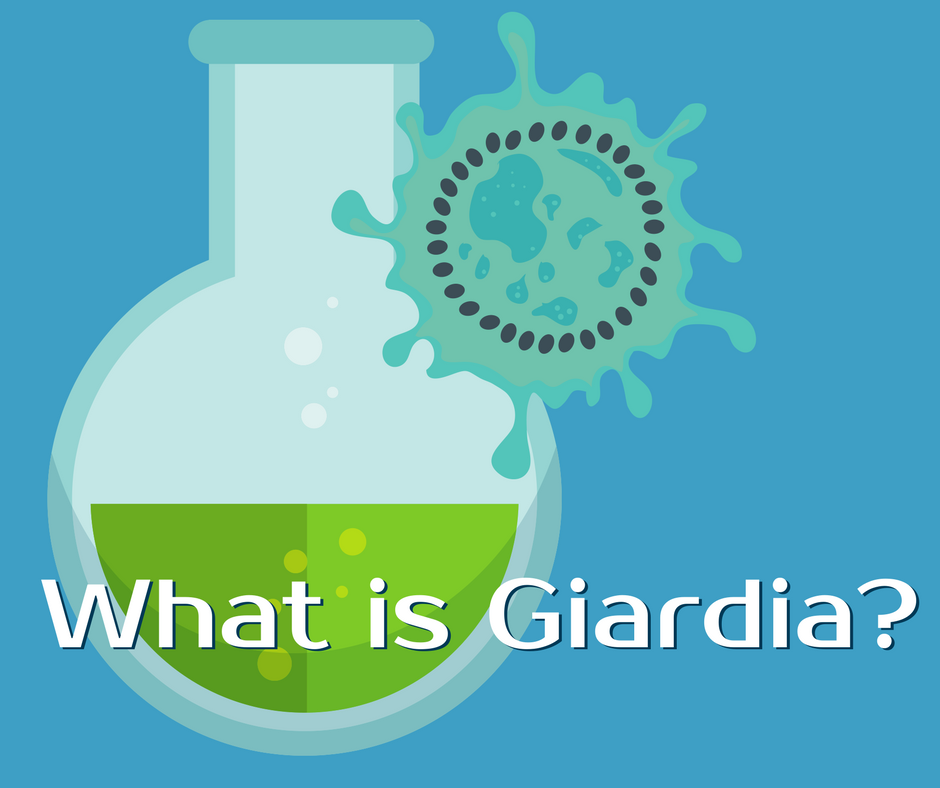Drinking Water Contamination - What is Giardia?
Giardia Can Cause Illness When Drinking Contaminated Water
When you receive your water from a private well it's your responsibility to monitor the quality of your water source through testing. There are many man-made and natural water contaminants that can make their way into the aquifer you draw water from. Some like magnesium or calcium, which create hard water, are merely a nuisance and do not pose a health hazard. Others like bacteria or microbial parasites like cryptosporidium or giardia are common water contaminants that can pose a health risk when consumed. Learn more about water treatment and contamination.
What is Giardia?
Giardia is a common parasite that has developed a life strategy that allows it to survive for long intervals between hosts. When they exit the host, they form a protective exterior shell and enter a dormant state. During this stage of their life, they are known as microbial cysts. When microbial cysts are ingested and enter the digestive system, the gastric juices break down the shell, release the parasites and they again become active. Before leaving their host, they once again form a protective shell to aid their survival outside of the host. Once excreted, they can be transmitted through unsanitary conditions where the cycle repeats.
Giardia causes an illness known as giardiasis. Most people know this as “beaver fever.“
Giardia is found in the digestive system of humans and other mammals like beavers, dogs, and farm animals. It can also be found outside the body in lakes, streams and animal feces where it becomes a microbial cyst and can survive for long period of time.
How You Catch Giardiasis
There are two primary ways that giardia can get you sick. If you drink water that has been contaminated with animal or human feces, for example, if a septic field is too close to your well and it leaches into the aquifer. You can also catch giardiasis be handling, or contact with infects humans, animals, or feces. Often times the cysts can be carried into waterways by runoff, where a person can get infected by ingesting contaminated drinking water, or by ingesting water while swimming or boating.
Symptoms of infection can vary but often include severe diarrhea, vomiting, headaches, stomach cramps, nausea, chills, fatigue and bloating. Symptoms usually last a week or two but can last as long as a month. If you become infected contact your doctor. They can prescribe the appropriate treatment.
Preventing Infection
In order to prevent infection from this waterborne parasite precautionary measure are recommended for example:
• Practice good hygiene. Wash hands before eating or preparing meals, after using the restroom, changing a diaper, or assisting a child in the toilet. Always wash hands after touching animals or handling animal waste.
• Avoid ingesting water that may be contaminated. That includes water in public pools. Don't drink untreated water from rivers, streams, or lakes no matter how clean it looks. Cysts can be washed into these source by runoff. Always take precautionary measure when traveling or camping including boiling water, filtering water or buying bottled water.
• Home drinking water filters are an effective treatment for giardia. Standard disinfection, for example, chlorine, may not be able to destroy giardia. It is extremely hardy. Filtration is the recommended method for removing the parasite. Companies like Berkey offer water filtration systems that are specifically designed to remove contaminants including microbial cysts like giardia.
At Skillings and Sons, we can help you to treat your water for contaminants including microbial cysts like giardia. We offer filtration systems that can handle a variety of water treatment needs including microbial cysts, viruses, and other organic and inorganic compounds. If you believe your water may be contaminated, give us a call. We can arrange testing and offer a variety of treatment options.


